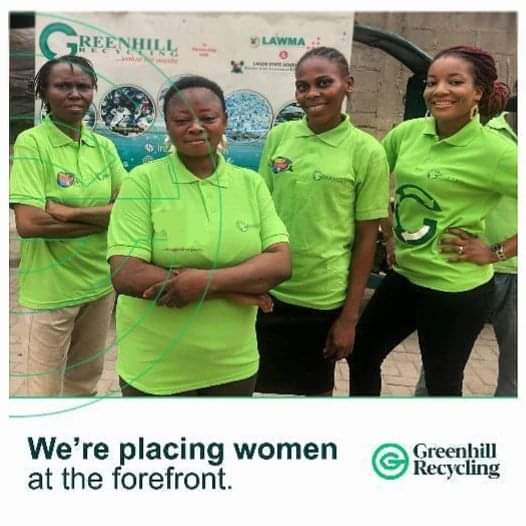The world has been facing a climate crisis due to several contributing factors, one of which is plastic pollution. According to estimates by the United Nations (UN), the world produces approximately 430 million tonnes of plastic each year in the form of wrappers, plastic utensils, packets, household equipment, etc. Consequently, nearly 2000 trucks of plastic are disposed of into water bodies daily. There is a fear that if plastic pollution is not kept under control, it will increase threefold by 2060.
Some countries are more affected than others due to such kinds of pollution. Nigeria, for example, produces 2.5 million metric tonnes of plastic waste every year, out of which 130,000 metric tonnes are dumped into the marine ecosystem. Due to the country’s high contribution to global debris, it is also one of the worst-affected regions due to pollution. Lagos, Nigeria’s most populated city, often suffers due to climate shocks such as drain blocks and floods.
Women-led Measures:
According to Olumide Idowu, executive director of the International Climate Change Initiative, there is an urgent need for sustainable waste collection and recycling facilities to combat the adverse effects of pollution in Nigeria. The Ministry of Environment has already launched the Nigeria Circular Economy Policy in 2020 to the same effect. To add on to the government’s efforts, several individual enterprises have also come up, led by women, to raise awareness, combat pollution, and educate peers about the need for sustainable waste management.
One of such leaders is Maryam Lawani who lived in the Oshodi Isolo area of Lagos, Nigeria’s commercial capital. It was a densely populated area and witnessed water logging and choked drains during heavy rains. During her research, he discovered plastic pollution to be the major cause of such adverse conditions. She founded ‘Greenhill Recycling’ in 2015 to recycle plastic, and it now recovers around 100–200 tonnes of plastic waste every month. It also provides income to those around her who get 100–150 naira ($0.1265) paid per kilogram of trash collected. According to her, “we encourage and sensitise people not to thrash waste but to bag it neatly in their homes … we pick up from their doorstep, their homes and not in dump sites.”
Set in coastal Lagos, RESWAYE (Recycling Scheme for Women and Youth Empowerment) works among women and young girls and trains them to go to schools and estates to collect plastic, which is first sent to the sorting hub and then for upscaling. According to Doyinsola Ogunye, the founder of RESWAYE, it has already reached out to 4000 women in 41 communities. For their contribution, the women are provided with personal hygiene kits and the children with scholarships for their education.
Another nonprofit organization called ‘Foundation for a Better Nigeria’ (FABE) was founded by Temitope Okunnu in 2006. It works in schools by raising awareness among children about climate change and encouraging recycling and upcycling plastic. Operating across three states, its aim is to teach children the importance of sustainable waste management.
By encouraging such initiatives either led by women or working among women, Nigeria has been reaching out to those communities that are the worst affected by the climate crisis. With this unique bottom-up approach, Nigerian women are leading the way in paving a roadmap for the future, setting an example for other countries to follow.









